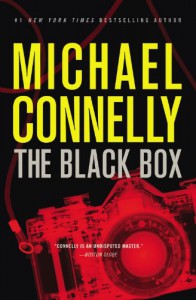
There's so much going on in this big honker of a book that, for sure, various readers and reviewers will find many aspects to like and dislike, be it with the style, content, implied politics or religion. For the first few chapters of [b:Reamde|10552338|Reamde|Neal Stephenson|http://d202m5krfqbpi5.cloudfront.net/books/1305993115s/10552338.jpg|15458989], I leaned towards the dislike side. Then I realized this was because of a desire for this book to be something else, to be more like [b:Cryptonomicon|816|Cryptonomicon|Neal Stephenson|http://d202m5krfqbpi5.cloudfront.net/books/1327931476s/816.jpg|1166797], or the much earlier [b:Snow Crash|830|Snow Crash|Neal Stephenson|http://d202m5krfqbpi5.cloudfront.net/books/1320544000s/830.jpg|493634]. But then, somewhere midway through the book, I stopped resisting and sort of settled into Stephenson's gestalt --- one where he finds a need to explain every action and motivation, where no detail is too small not to spend at least a paragraph on, where there must be good and evil, heroes and villains, and that repeatedly finds an illegal means where there's a perfectly kosher way to do things --- and the preference counter shifted to the "like" side where it remained until the conclusion. Rather than treat the reading experience as root canal, it made more sense to learn to enjoy and make the most of it; much like life.
I had most fun googling the routes the various focal characters took along the 49th parallel. (I quickly discovered that Google Maps is not sufficient for the level of detail of the book, and had to find additional resources. But it was still a challenge to figure out which places are real and which a figment of Neal's fertile mind.)
[b:Reamde|10552338|Reamde|Neal Stephenson|http://d202m5krfqbpi5.cloudfront.net/books/1305993115s/10552338.jpg|15458989] may not be [b:Snow Crash|830|Snow Crash|Neal Stephenson|http://d202m5krfqbpi5.cloudfront.net/books/1320544000s/830.jpg|493634] but it does have that book's snarky commentary of our contemporary mores and fixtures. It also starts out like the recently popular [b:Ready Player One|9969571|Ready Player One|Ernest Cline|http://d202m5krfqbpi5.cloudfront.net/books/1333576871s/9969571.jpg|14863741], and sustains a punkish gloss for a bit, but then turns less virtual after the first half of the book. But mostly, it reminds me of a much earlier Stephenson effort, [b:The Cobweb|824|The Cobweb|Neal Stephenson|http://d202m5krfqbpi5.cloudfront.net/books/1320409244s/824.jpg|905465], a similarly border-crossing, terrorist-driven action thriller that has its characters traipsing through the Iowan byways. In many ways Reamde seems an update of that earlier book, benefiting from the author's years of toil on the keyboard but still at heart the same book.
"So what is the book really about?" - someone who hasn't actually read it may be wondering. Here's my take. The author presents a series of contrived locational coincidences starting in (a) Vancouver, BC - where the millionaire ex-smuggler, Richard Forthrast, inadvertently lends a virus-infected thumb drive to a friend of his niece, Zula, which then infects the confidential files of Ivanov, a Russian mobster, who then kidnaps Zula and her friend and takes them to (b)Xiamen, China ostensibly to punish the virus developer, named Marlon; Ivanov flies in more staff, including a seasoned assassin, Sokolov, and a Hungarian hacker, Changor; Zula misleads Ivanov to break into the wrong apartment, one which turns out to be the bomb-making facility of the infamous terrorist Abdullah Jones; a violent encounter ensues between the Russians and the terrorists in which all of Ivanov's gangsters, including Ivanov himself, are killed, except for Sokolov and Changor; to escape Chinese authorities, Sokolov enlists the help of Olivia, a British undercover agent who happens to have been watching Jones in a nearby building, Marlon joins up with Changor and Xusha, a pretty Chinese huckster, make their way to a remote town in (c) the Philippines, where they meet the American agent Shamus, at an internet cafe; meanwhile Jones heads for (d) the Pacific Northwest with hopes to conduct terrorist operations in the United States, and, with Zula still hostage, concocts a plan to enter the US via the smuggling route earlier used by Zula's uncle Richard; meanwhile Shamus, Marlon, Changor and Zusha land in Washington state via charter jet paid using Marlon's loot from hacking; Sokolov and Olivia arrive separately in Seattle and Vancouver and meet up accidentally as they both follow Jones' trail; then everyone meets up in (e) the Selkirk Mountains where the final tableau is set at the Forthrast family compound in northern Idaho. All this is, perhaps, just buildup to the set finale pitting a motley crew of computer jocks and survivalists against the "jihadists" in a running gun battle that takes the final fifth of the book. In Stephenson's idealized world, the "good" guys win and end up killing the terrorists. If only this were non-fiction. But the real world does not always work out this way; at times, perhaps more often than we would like, terror wins (this last note added on 4-16-2013, a day after the Boston Marathon bombing).
The book is certainly buoyed up by Stephenson's clear, uncomplicated prose though I would perhaps have enjoyed a significantly more spare approach. But as I said, I learned to enjoy the earnest effort to provide cogent reasons for its characters' actions and realistic backdrops for its various narrative threads. And so I give this 4 stars.







 1
1
















